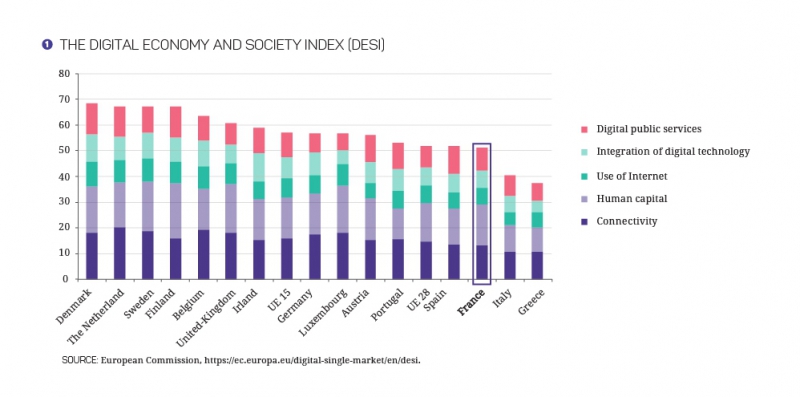
Read the original on the French-language website
In less than the span of a decade not only has digital technology transformed the way we access information and go about our daily lives, it has also reshaped entire sectors of the economy.
The question is what will happen in the coming decade, from 2017-2027. Information and communication technologies (ICTs) will likely continue to refashion our societies, impacting an increasing number of goods and services, including in the public sector. They will keep simplifying, optimizing, and transforming organisations across the board.
The consequences of this are vast, and the stakes are high for the French economy. France needs to be a catalyst for digital change if it is to lead and not follow. Yet the country finds itself in a potentially tricky situation: despite its infrastructure, engineers and high user penetration, it is third from last when it comes to digital development in the EU-15 (Graphique).
To turn this situation around before it becomes a handicap, France needs to lay out collective goals and principles and provide a framework that fosters innovation and backs new developments.
The digital economy’s potential places it at the nexus of French society in the 21st century, making it a crucial issue to be debated in 2017.







